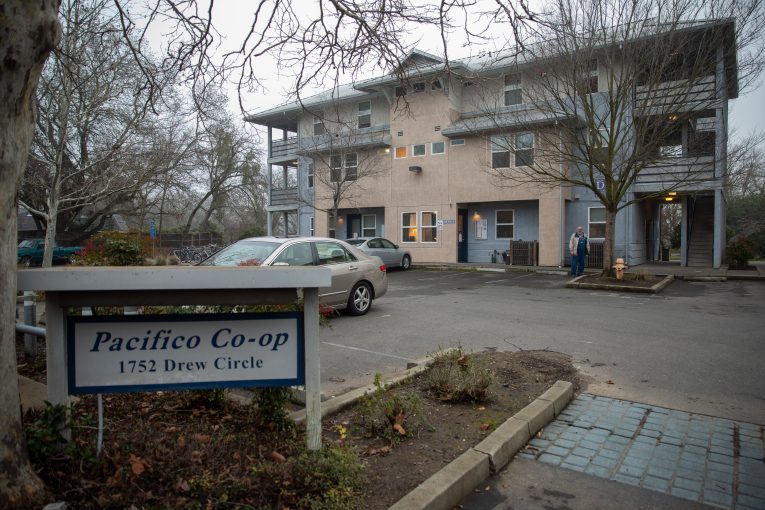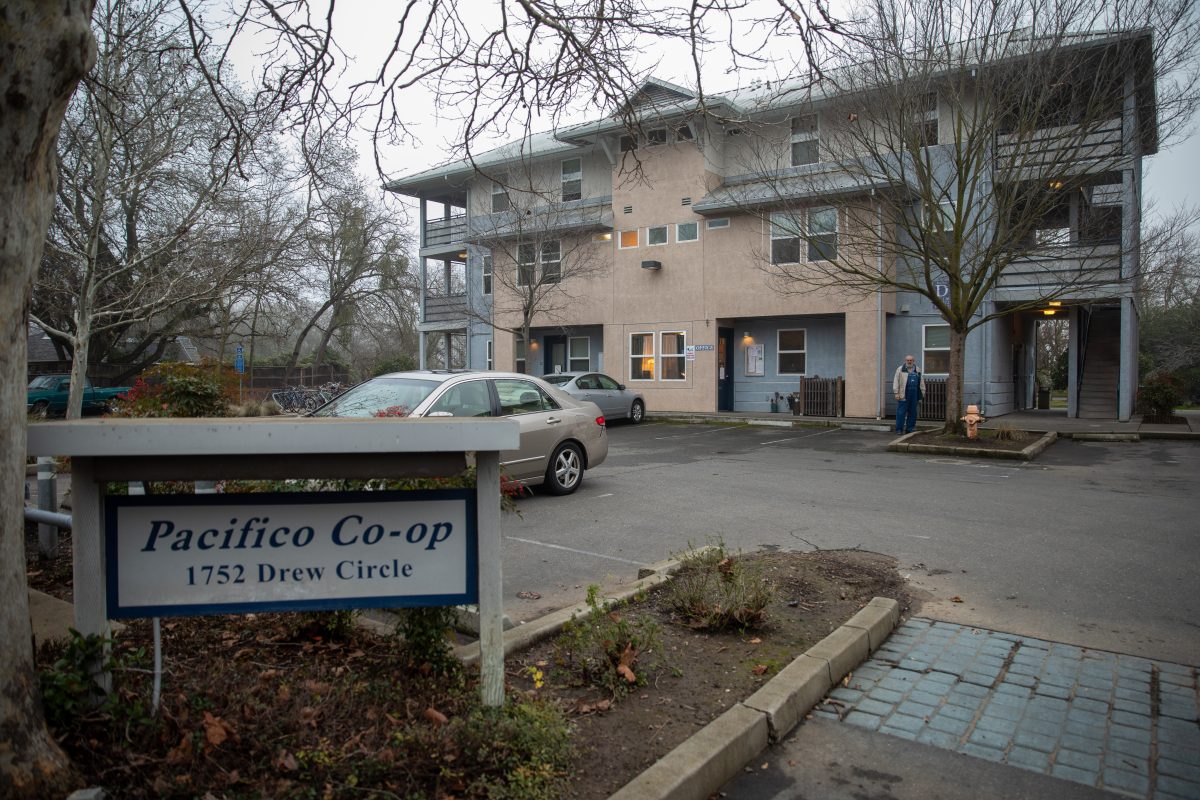

Back in February, the Davis City Council heard numerous complaints about the operations of the Pacifico Affordable Housing Complex. Neighbors and adjacent residents complained about the ongoing nuisance at Pacifico.
Hearing this prompted the council to action.
“My solution would be to change the use of the current affordable project there,” Mayor Brett Lee said, asking staff to investigate the possibility of it being seniors only. His colleagues, while perhaps less explicit on the specific use, agreed with the idea that staff re-examine the usage of the facility to look at a variety of alternative resident categories in order to deal with the problems that are reported on the ground.
“The message is that all of us realize that there is a significant problem we need to address,” Dan Carson explained.
The question is what the city will do. The first thing that has occurred, according to the city council’s staff report, is that Yolo County Housing, which manages the property on behalf of the city, has continued to work over the last three months to evaluate the situation and address concerns.
These actions range from working with the residents and neighbors to working with the Davis Police Department to monitor police calls and address complaints. In addition, they have tightened security by locking the gate at the water pump areas, added lighting on the stairwells, and installing security and other cameras at critical junctures.
The property was originally designed as a student cooperative for university students. In 2010/2011, finding “both a lack of interest by UC Davis, including international students, and other area  college students and an unsustainable vacancy rate, the property foreclosed, and the City took ownership.”
college students and an unsustainable vacancy rate, the property foreclosed, and the City took ownership.”
Staff notes: “At the time of ownership, only one resident was considered a student.”
While the type of housing can change, it must remain affordable. The city at the time of development “required a Covenant to be recorded on the property to ensure affordability across any ownership changes. This is standard for all affordable properties in Davis. The Covenant requires that the property be rented to income-qualified individuals or households who do not exceed low or very low income levels.”
Staff writes that Davis has “an extremely low vacancy rate.” They write that it “has been under 2% for at least the last five years, and currently stands at 1.9%.” Affordable units are included in this rate, “and may be even more difficult to find.” Staff writes, “This lack of availability translates into a need for affordable housing of all types for all low-income populations.”
Staff has considered the following populations for the Pacifico property: (1) University Students, (2) Seniors, (3) Special Needs, (4) Families, (5) Artists, (6) Workforce, (7) Veterans, and (8) General Low Income.
Staff notes that, while the original intent for Pacifico “was to be student-oriented cooperative, targeted to university students,” they noted “there did not seem to be interest in a co-op type of living arrangement.”
But the rental market is a good deal tighter now than it was at the time Pacifico closed and we have seen “the rise in popularity of student-oriented, ‘by the bed’ developments with four projects approved in the City…”
Senior housing is possible but “evaluators would need to be added to each building” and the floor plans reconfigured.
Staff does not believe the current set up of single and double rooms accommodates “most family lifestyles” but they do add that “the location of the property, adjacent to the bike path and away from busy streets, is beneficial to families with children. To renovate Pacifico for family housing would require transforming the existing setup into separate apartments to 2 or possibly 3 units per floor.”
They argue that it could work as workforce housing, for “individuals who have recently entered the workforce and those who work locally, often in lower-paid jobs. The property, as it is currently laid out, could support this type of population, perhaps through a combination of apartment-style units and the current ‘suite’ configuration.”
Staff also notes that Yolo County has submitted to the city a Conditional Use Permit request for two mental health programs to be housed at Pacifico. Currently that application is on hold, but the city at some point will be asked to make a decision.
The first proposal is for an Adult Residential Facility, which would house individuals with mental health issues as part of a county program. The second is the application for a Navigation Center. Such a facility would provide services for individuals with mental health issues during regular business hours. It would not include a residential component.
In 2011, the city took over ownership of the property. As they note, “Although the City owns and manages numerous properties, the City organization does not have capacity or expertise in managing the day-to-day operations of income-restricted rental housing.”
As a result, the city contracts out to Yolo County Housing.
The city notes that the two closed buildings will require renovation prior to occupation, “although the City acknowledges that the ability to utilize all four buildings provides an economy of scale to assist in management of the property.”
In 2016, the City passed a resolution indicating “its intent to transfer the property to Yolo County Housing, along with $500,000 of Housing Trust Fund money to assist with renovations.”
The last appraisal placed the value at just under $2 million but it could be valued at $2.4 million. Staff writes, “The complexity of an affordable housing property necessitates a management structure experienced with affordable housing and skilled in general rental property management.”
Since the city lacks expertise or bandwidth itself to manage the daily operations of the property, “staff continue to recommend that the City either contract this function out or sell the property and require an owner to provide a certain type of affordable housing.”
At this juncture, staff recommends releasing a Request for Proposals for investment in and management of the property. This could include maintenance of the affordable beds, full utilization of all four buildings including rehabilitation of the two closed buildings, and designation of the target population.
Staff is recommending a subcommittee of council to work with staff to expedite this process.
—David M. Greenwald reporting


I have no skin in this one, but it feels like the council is kowtowing to a bunch of NIMBY’s who are anti-affordable housing in their neighborhood.
Craig – I suspect you are right. One reliable indication is when the primary alternative proposed use is for senior housing—the least controversial category of special needs housing.
Really sad that Davis residents don’t want using addicts to smoke meth next to their homes or bike paths where their children ride. What is wrong with those people?
Jim – What type of housing are you thinking of that permits tenants to engage in unlawful drug use? Affordable housing? Supportive housing for people with disabilities? Student housing? What other populations in need of housing would you like to exclude from your neighborhood?
Housing First of course
“For instance, program policies consistent with a Housing First approach do not consider alcohol or drug use in and of itself to be lease violations,”
https://files.hudexchange.info/resources/documents/Housing-First-Permanent-Supportive-Housing-Brief.pdf
Many people, including myself, would be supportive of an abstinence based recovery facility.
I think a week ago, Alan posted a documentary about homelessness problem. That video says that many people see homelessness a housing problem, but the majority could be a drug addiction problem. The video shows how the city policies of branding drug addiction as a housing problem created a reality in Seattle where the police can no longer enforce the laws and a once beautiful city turned into a dump.
The video presents a solution from Rhode Island where illegal drug users go to prison where they could come clean and return to normal society. One of the addicts who was arrested by the police on the day he was arrested, he thanked the officer for saving his life, although the officer had no idea what he meant.
How full is our prison? Prison is housing and addicts could come clean with the right programs. Do we have the right programs? Why aren’t we putting illegal drug users in prison? Then we don’t need to build new walls or fences. A prison already has walls, guards, surveillance.
Watch “Seattle is Dying”. Watch through to the end. Seattle is example of west coast “Societal Enabling”.
https://www.youtube.com/results?search_query=seattle+is+dying
Edgar, Prison may be too far. Giving people under the influence 3-5 days in jail to calm down and get a couple of meals and a shower may be a good idea.
Good thinking, 3 to 5 days is just long enough for people to lose their job – if they have one.
My zots exactly.